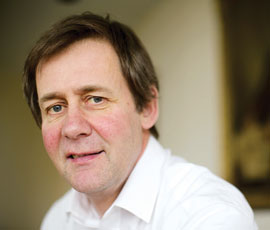RASE reveals plan for farm extension service network

A plan has been unveiled for an extension service that offers technical support and advice to farmers and helps speed up adoption of new technology and best practice.
Agricultural societies across England and Wales are looking for funding to launch an advisory service next year, which aims to pull together research and data from top farms in the UK, universities, commercial bodies and global contacts.
The initiative is being spearheaded by the Royal Agricultural Society of England (RASE), who unveiled the plans at the Institute of Agricultural Management (IAgrM) annual conference on Thursday, 28 November.
The aim is to create an interdependent network where different agricultural societies become centres of excellence in different areas, such as dairy, cereals, soil or renewables, in order to help farmers “raise the bar” through the early adoption of new technology and techniques.
Project coordinator David Gardner, who is also RASE chief executive, said the initiative would address some gaps in providing knowledge to farmers, which has seen the UK fall behind other nations.
“One of the key weaknesses of UK research and development is that it is horribly fragmented,” said Mr Gardner.
“We used to have centres of excellence, but now research is scattered across a wide group. None have got enough to make a story out of their research and there is no one pulling it all together,” he added.
Agricultural societies were perfectly placed to deliver this, according to Mr Gardner, as they had a strong, wide-reaching network of showgrounds and were trusted by farmers.
The information provided would be aimed at decision-makers within the business, whether they are the farmer or farmworker.
Ultimately, Mr Gardner hopes the service will be free to users, much like the National Agricultural Advisory Service (NAAS), formed in 1946 after the Second World War.
NAAS became the Agricultural Development and Advisory Service (ADAS) in 1971 and was privatised in 1997.
Mr Gardner, who has travelled around the country introducing societies to the idea, said he planned to launch the initiative with three centres, quickly growing to about six and building to 10 after three years.
He already had a number of societies showing a solid interest in the project, he said.
A summit will be held in March to plan the project and to identify which societies will be responsible for which subjects and to create a structure of governance.
